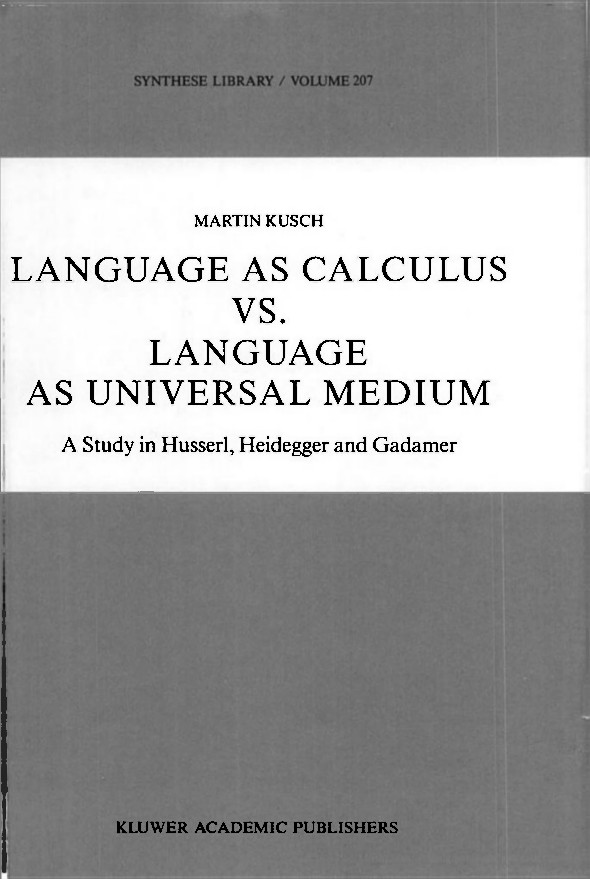Michel Foucault: The Order of Things: An Archaeology of Human Sciences (1966–) [FR, IT, ES, EN, SH, DE, RU, PT, GR, TR, RO, ZH, CZ]
Filed under book | Tags: · biology, economics, epistemology, history, language, linguistics, ontology, philosophy, psychoanalysis

“When one defines “order” as a sorting of priorities, it becomes beautifully clear as to what Foucault is doing here. With virtuoso showmanship, he weaves an intensely complex history of thought. He dips into literature, art, economics and even biology in The Order of Things, possibly one of the most significant, yet most overlooked, works of the twentieth century. Eclipsed by his later work on power and discourse, nonetheless it was The Order of Things that established Foucault’s reputation as an intellectual giant. Pirouetting around the outer edge of language, Foucault unsettles the surface of literary writing. In describing the limitations of our usual taxonomies, he opens the door onto a whole new system of thought, one ripe with what he calls “exotic charm”. Intellectual pyrotechnics from the master of critical thinking, this book is crucial reading for those who wish to gain insight into that odd beast called Postmodernism, and a must for any fan of Foucault.”
Publisher Gallimard, Paris, 1966
ISBN 2070224848
404 pages
English edition
With Foreword to the English edition by Michel Foucault
First published by Tavistock Publications, 1970
Publisher Routledge, London/New York, 1989/2005
ISBN 0415267366
422 pages
interview with the author (video, 14 min, 1966, in French)
wikipedia (FR)
wikipedia (EN)
Les mots et les choses. Une archéologie des sciences humaines (French, 1966)
Le parole e le cose. Un’archeologia delle scienze umane (Italian, trans. Emilio Panaitescu, 1967)
Las palabras y las cosas. una arqueología de las ciencias humanas (Spanish, trans. Elsa Cecilia Frost, 1968)
The Order of Things: An Archaeology of Human Sciences (English, trans. unknown, Pantheon Books, 1971, no OCR)
Riječi i stvari. Arheologija humanističkih znanosti (Serbocroatian, trans. Sreten Marić, 1971)
Die Ordnung der Dinge. Eine Archäologie der Humanwissenschaften (German, trans. Ulrich Köppen, 1971/74, 14 MB, no OCR)
Слова и вещи. Археология гуманитарных наук (Russian, trans. В. П. Визгин and Н. С. Автономова, 1977/94)
As Palavras e as Coisas: Uma arqueologia das ciências humanas (Portuguese, trans. Salma Tannus Muchail, 8th ed., 1981/2000)
Οι λέξεις και τα πράγματα. Μια αρχαιολογία των επιστημών του ανθρώπου (Greek, trans. Κωστής Παπαγιώργης, 1986)
The Order of Things: An Archaeology of Human Sciences (English, trans. unknown, Vintage Books, 1971/1994, PDF), EPUB
Kelimeler ve şeyler. Insan bilimlerinin bir arkeolojisi (Turkish, trans. Mehmet Ali Kılıçbay, 2nd ed, 1994/2001)
Cuvintele și Lucrurile, o arheologie a științelor umane (Romanian, trans. Boghdan Ghiu and Mircea Vasilescu, 1996)
词与物 (Chinese, trans. unknown, 2002)
The Order of Things: An Archaeology of Human Sciences (English, trans. unknown, Routledge, 1970/2005)
Slova a věci (Czech, trans. Jan Rubáš, 2007, 51 MB)
Martin Kusch: Language as Calculus vs. Language as Universal Medium: A Study in Husserl, Heidegger and Gadamer (1989)
Filed under book | Tags: · hermeneutics, language, mathematics, phenomenology, philosophy

The book applies a novel interpretational framework in philosophy of language to the study of Husserl, Heidegger and Gadamer, emphasizing the fundamental opposition in Husserl’s and Heidegger’s views concerning the relations between language and the world. The author shows how Husserl’s idea of language as a reinterpretable sign-system informs his whole philosophical project from the early work on the philosophy of mathematics to the late studies on the life-world.
The book also explains Heidegger’s central reasons for rejecting Husserl’s conception of language, the central tenets of Heidegger’s early as well as his late “thought” being interpreted as so many corollaries of this rejection. The book concludes with a discussion of Gadamer’s hermeneutics which is analyzed as an attempt to avoid the extremities of both Husserl and Heidegger. The study also elaborates on similarities and differences between these thinkers and classicists in the analytical tradition such as Frege and Wittgenstein.
Publisher Kluwer Academic Publishers, Dordrecht / Boston / London, 1989
Synthese Library, Volume 207
ISBN 0792303334, 9780792303336
362 pages
Michel Foucault: The Archaeology of Knowledge (1969-) [FR, ES, IT, EN, BR-PT, AR, SR, TR, CZ, RU]
Filed under book | Tags: · archaeology, discourse, epistemology, knowledge, knowledge production, language, method, philosophy, philosophy of history, theory

“The Archaeology of Knowledge (L’archéologie du savoir) is a methodological treatise promoting what the French philosopher Michel Foucault calls “archaeology” or the “archaeological method”, an analytical method he implicitly used in his previous works Madness and Civilization, The Birth of the Clinic, and The Order of Things. It is Foucault’s only explicitly methodological work.
The premise of the book is that systems of thought and knowledge (“epistemes” or “discursive formations”) are governed by rules (beyond those of grammar and logic) which operate in the consciousness of individual subjects and define a system of conceptual possibilities that determines the boundaries of thought in a given domain and period.” (from Wikipedia)
French edition
Publisher Editions Gallimard, 1969
275 pages
English edition: The Archaeology of Knowledge and the Discourse on Language
Translated by A. M. Sheridan Smith
Discourse on Language was originally published in French as L’ordre du discours, Editions Gallimard, 1971. English translation by Rupert Swyer
Publisher Pantheon Books, New York, 1972
ISBN 0394711068
246 pages
via esco_bar
L’archéologie du savoir (French, 1969, no OCR)
La arqueología del saber (Spanish, trans. Aurelio Garzón del Camino, 1970/2002, no OCR)
L’archeologia del sapere: Una metodologia per la storia della cultura (Italian, trans. Giovanni Bogliolo, 4th edition, 1971/2009, via oize, EPUB)
The Archaeology of Knowledge and the Discourse on Language (English, trans. A. M. Sheridan Smith and Rupert Swyer, 1972). Routledge Classics edition (2002, added on 2013-6-28)
A Arqueologia do Saber (BR-Portuguese, trans. Luiz Felipe Baeta Neves, 7th edition, 1972/2008, no OCR, no OCR)
حفريات-المعرفة-فوكو (Arabic, 1987, no OCR)
Arheologija znanja (Serbian, trans. Mladen Kozomara, 1998, no OCR)
Bilginin arkeolojisi (Turkish, trans. Veli Urhan, 1999, no OCR)
Archeologie vědění (Czech, trans. Čestmír Pelikán, 2002, no OCR)
Археология знания (Russian, trans. М. Б. Ракова and А. Ю. Серебрянникова, 2004, PDF, added on 2013-9-26), DJVU

